A synthesis report by FP Analytics with support from Roche
October 2023
On the sidelines of the 78th United Nations General Assembly (UNGA), Foreign Policy and Roche hosted a timely discussion on diagnostics, bringing together policymakers, global health experts, and industry leaders to highlight the role of diagnostics in addressing global health security and achieving the UN Sustainable Development Goals (SDGs). The convening was held amid the high-level meetings on Universal Health Coverage (UHC), Pandemic Prevention, Preparedness and Response, and the fight against Tuberculosis, as well as the global stock-take on progress toward the UN SDGs.
This event—Diagnostics Beyond 2030—was the second in a series of jointly hosted convenings that kicked off during the World Health Assembly (WHA) in May 2023 focused on Prioritizing Diagnostics on the Global Agenda. That event emphasized the role of diagnostics in early detection and treatment and the importance of its inclusion in global public health policies, programs, and investments—particularly in low- and middle-income countries. The event drew attention to, and immediately preceded, the WHA adoption of a resolution encouraging governments and the private sector to further invest in strengthening laboratory infrastructure, supply chain management, workforce and capacity building, and diagnostics quality assurance.
The subsequent convening, held in September 2023 alongside UNGA78, provided an opportunity to build on previous discussions and pinpoint the kinds of investments and partnerships that are needed to more effectively combat disease, improve public health, and, by extension, contribute to economic development. Diagnostics Beyond 2030 served as an opportunity to chart the course of what must be prioritized to meet the ambitious 2030 SDG deadline and to maintain momentum thereafter for advancing health security around the world.
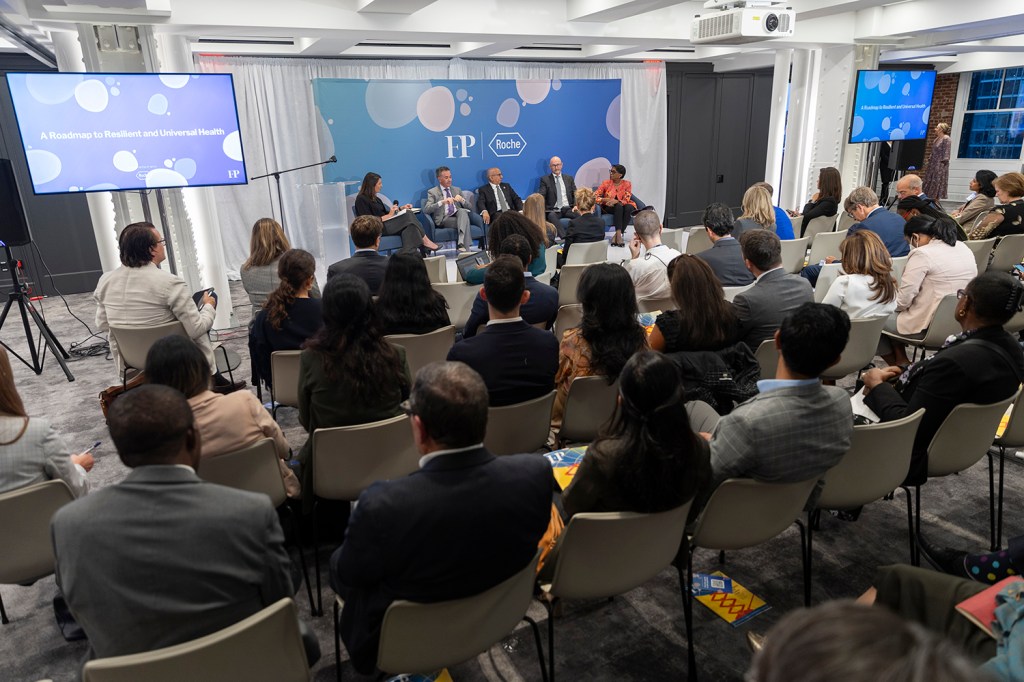
Key takeaways from the Diagnostics Beyond 2030 discussion include:
- Diagnostics are often overlooked in strategies for health care investment, research, and development, despite their foundational role in prevention, early intervention, and tracking disease.
- COVID-19 exposed weaknesses in global and local health infrastructure, but the identification of these gaps is facilitating the development of targeted strategies to improve health system resilience.
- Lack of clinics and testing capacity, particularly in lower- and middle-income countries (LMICs), can lead to long wait times and failure to receive timely and accurate diagnoses, which lead to poor health outcomes. Clinic and lab integration, along with data-sharing platforms and protocols, can improve access and reduce wait times.
- Governments and the private sector have much to gain from working together, particularly by strengthening local capacity and knowledge, and ensuring sustainable supply of operational equipment and inputs for diagnostics and treatment.
Panel discussion
The Future of Diagnostics: Global Perspectives on Innovation, Equity, and Collaboration
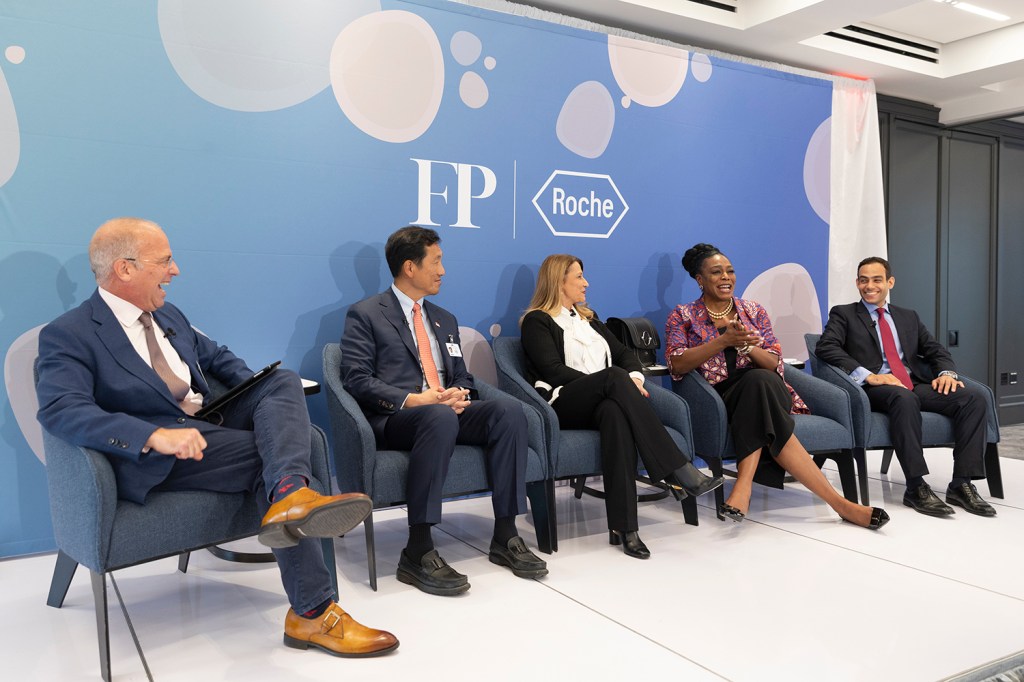
Moderator: Andrew Sollinger, Publisher & CEO, Foreign Policy
Panelists: Dr. Ayoade Alakija, Special Envoy for the Access to COVID-19 tools Accelerator (ACT-Accelerator), WHO, and Chair of the Board, Foundation for Innovative New Diagnostics (FIND); Prof. Khaled Abdel-Ghaffar, Minister of Health and Population, the Arab Republic of Egypt; Ong Ye Kung, Minister for Health, Singapore; and Ethel Leonor Noia Maciel, Secretary for Health Surveillance and Environment, Ministry of Health, Brazil.
In the opening conversation, Dr. Ayoade Alakija, Special Envoy to the WHO for the ACT-Accelerator, and Chair of the Board of the Foundation for Innovative New Diagnostics, succinctly summarized the key point on which all participants agreed: Investors and policymakers often underestimate the importance of diagnostics to promoting good health and well-being. Ong Ye Kung, Minister for Health of Singapore, emphasized this point, noting that not only did the COVID-19 pandemic require different diagnostics from the 2003 SARS pandemic, despite the similarities between the two diseases, but that in 2020 diagnostics underpinned his country’s entire strategy, enabling contact tracing, vaccine development, and epidemic monitoring. As the populations of countries across Asia grow older, the minister noted, diagnostics will be key to the prevention of diseases, rather than disease treatment, and will help to enable older adults to enjoy longer and healthier lives with greater capacity.
Indeed, improving diagnostics is vital to disease prevention globally. Ethel Leonor Noia Maciel, Secretary for Health Surveillance and Environment for Brazil, similarly noted the critical role diagnostics play in preventing and treating disease among her country’s most vulnerable populations. While Brazil has universal health coverage, indigenous communities—of which there are over 300 tribes in Brazil—often lack access to care due to the remoteness of their communities, patterns of seasonal migration, and longstanding language barriers with local doctors. Working at the grassroots level to provide care in hard-to-reach communities is therefore essential to the overall health of Brazilian society, particularly as local communities are best placed to articulate their needs. This lesson applies broadly across regions. As Dr. Alakija emphasized, sharing a Yoruba adage, “The person who wears the shoe is the one who knows where it’s pinching and hurting.”
Highlighting a practical example, Prof. Khaled Abdel-Ghaffar, Minister of Health and Population for Egypt, described his team’s success in eliminating Hepatitis-C in Egypt, a process that involved screening 65 million people for the vector, and then treating the 1.2 million who tested positive as soon as possible. While such an undertaking required large investments of time, money, and personnel, the campaign was successful, and the Ministry of Health has measured a 350 percent return on investment. Health care professionals were able to simultaneously screen for noncommunicable diseases (NCDs), including diabetes and hypertension, to understand Egypt’s NCD burden and design targeted education, prevention, and treatment programs. Since the success of the Hepatitis-C project, the Ministry of Health has rolled out early-detection programs for breast, prostate, and colorectal cancers. Minister Abdel-Ghaffar noted the importance of multisectoral partnerships in undertaking the Hepatitis-C campaign, including those involving government, multilateral organizations, and the private sector.
Panel discussion
A Roadmap to Resilient and Universal Health
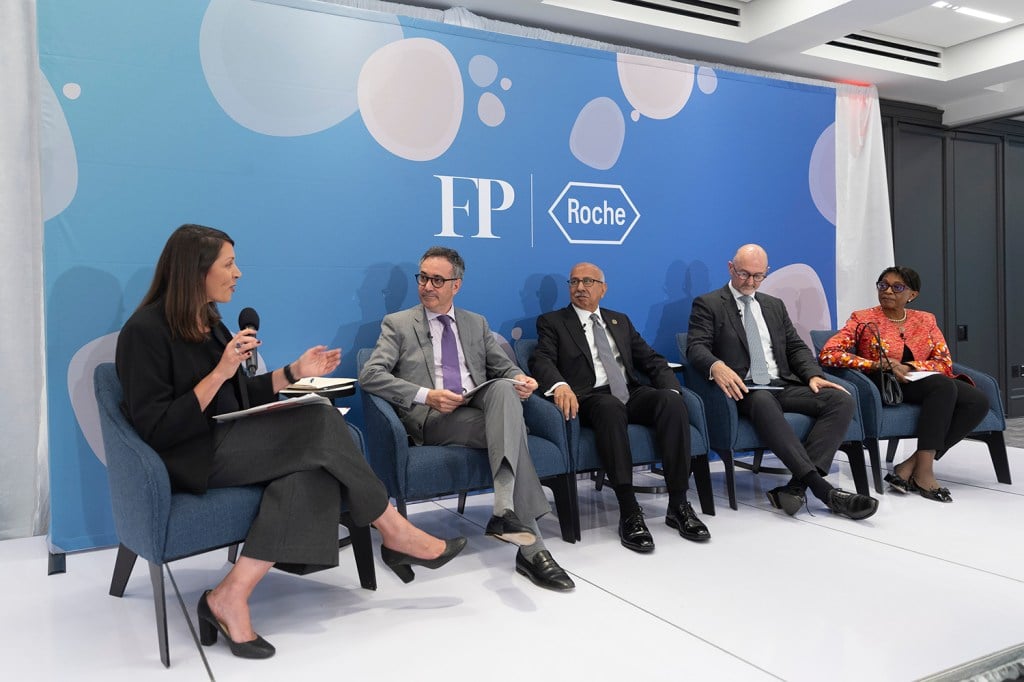
Moderator: Allison Carlson, Executive Vice President, Foreign Policy
Panelists: Navid Hanif, Assistant Secretary-General, UNDESA; Farid Fezoua, Global Director for Health, Education, and Services, IFC; Lance Little, President, Roche Diagnostics Asia Pacific; Dr. Matshidiso Moeti, Africa Regional Director, WHO.
A second panel discussion brought together representatives from the private sector and multilateral institutions to discuss A Roadmap to Resilient and Universal Health, focused on the central role that diagnostics can play in good health and well-being globally. Opening the discussion, Navid Hanif, Assistant Secretary-General of UNDESA, emphasized the interlinked nature of the SDGs, noting that “good health” is not only the absence of illness but also sustained access to food, nutrition, water, and sanitation, among other priorities. Panelists agreed that while diagnostics could be considered the “bedrock” of good health care, enabling doctors to make well-founded treatment decisions, sustainable access to the necessary equipment and supplies remains limited. Lance Little, President of Roche Diagnostics Asia Pacific, noted that around 47 percent of the global population does not have access to basic diagnostics, while Farid Fezoua, Global Director for Health, Education, and Services at the IFC, emphasized that across Africa the situation is even worse, with only 30 percent of African facilities able to access the reagents and equipment necessary. The Assistant Secretary-General noted that this disparity in health care is felt the most by lower-resourced countries and communities, particularly at the primary care level, despite the role that accurate, accessible diagnostics can play in reducing overall health care costs and avoiding productivity losses in future.
The COVID-19 pandemic exposed major weaknesses in global and national health care systems and supply chains, which threatened, and continue to threaten, timely and affordable diagnostics. However, the pandemic has in many instances helped to provide a roadmap for future investment and capacity-building. Dr. Matshidiso Moeti, Africa Regional Director at the WHO, described how frequent calls with Ministers of Health regarding the inability to procure diagnostics and testing resources during the acute early phase of the pandemic have led to a new emphasis on reducing fragmentation in global supply chains and better integration of diagnostics into community and primary health care infrastructure. Similarly, according to Mr. Fezoua, the IFC is now focused on shifting emergency health care investments into long-term sustainable access to key resources, including through a $300 million African medical supply financing mechanism focused on strengthening local health supply chains. Strengthening local manufacturing capacity could increase local and regional access to medical equipment, inputs, and therapeutics, and facilitate access to diagnostics, even in the event of another global health crisis.
Throughout the discussion, panelists agreed on the key role that industry and public-private partnerships can and should play in strengthening global health. Mr. Little and Dr. Moeti agreed that key to improving diagnostics access is not only supplying new equipment to under-resourced communities and clinics, but also providing the training and education necessary to operate the technology and ensuring sustainable access to medicines and other medical supplies, at affordable costs. Above all, resilient health care systems rely on all stakeholders recognizing the need to invest in affordable and accessible diagnostics.
Conversation
Strengthening Global Public Health Capacity
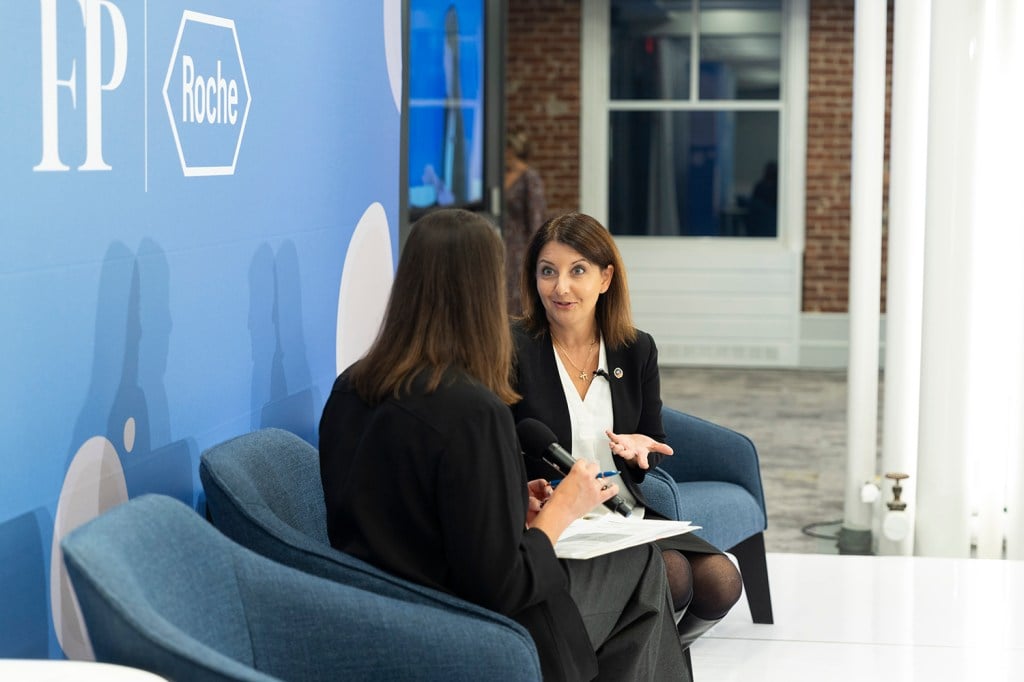
Moderator: Allison Carlson, Executive Vice President, Foreign Policy
With Dr. Mandy Cohen, Director, CDC
Panel Discussion
Diagnostics in Action: Strategies for Swift Detection and Response
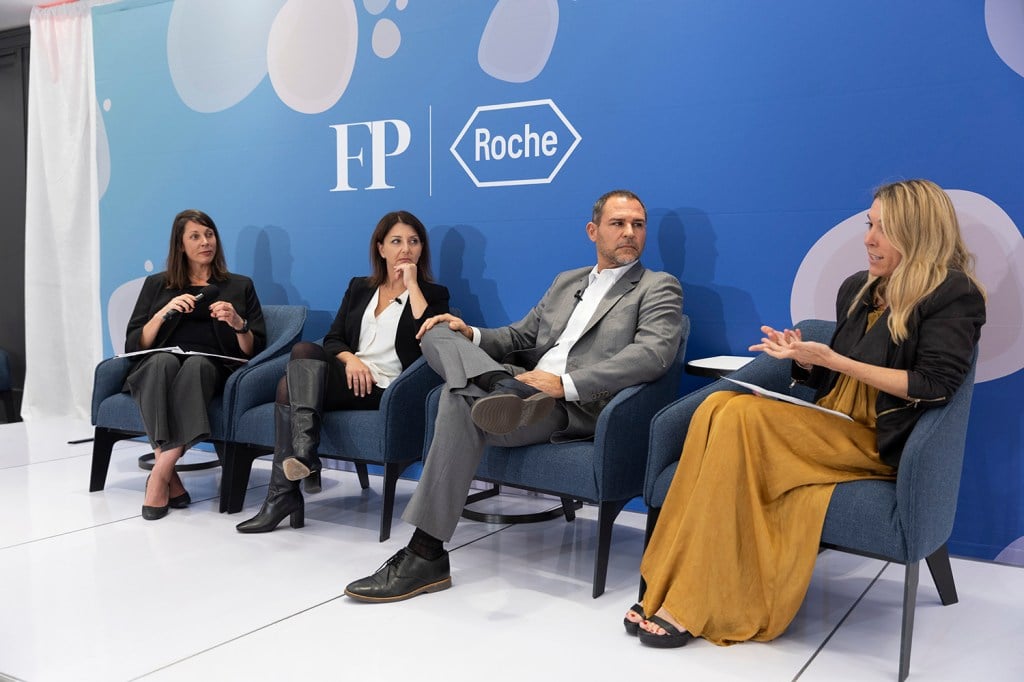
Moderator: Allison Carlson, Executive Vice President, Foreign Policy
Panelists: Dr. Mandy Cohen, Director, CDC; Dr. Alex Costa, Health Programme Team, UNICEF; Isabel Mestres Mesa, CEO, City Cancer Challenge.
The third and final section of the event opened with a conversation with Dr. Mandy Cohen, Director of the CDC, on Strengthening Global Public Health Capacity, during which she discussed some of the major lessons the organization has learned from addressing the COVID-19 pandemic. In particular, she emphasized the need to develop and supply rapid diagnostics for a wider range of diseases and called for a reduction in fragmentation and siloing, both within organizations and across sectors. The latter is a key priority for Dr. Cohen as she takes on the leadership of the CDC, sharing, for example, “I don’t want to see our TB team sitting apart from our COVID team sitting apart from our HIV team. We’re all helping the same communities. And so how are we sharing data, sharing lessons learned, and building trust with those communities?”
Dr. Cohen was then joined by Dr. Alex Costa, of the UNICEF Health Programme Team, and Isabel Mestres Mesa, CEO of the City Cancer Challenge, for a panel discussion on Diagnostics in Action: Strategies for Swift Detection and Response. All three panelists focused on the key role that local communities, health care providers, and industry can play in strengthening health systems and building trust with patients and beneficiaries, drawing on and sharing learnings from their own organizations’ strategies and tactics. Using the example of a project taking place in Kumasi, Ghana, Isabel Mestres Mesa emphasized the need to collect robust, local data to identify challenges and bottlenecks, as well as to engender buy-in from local and national leadership to implement health care-focused solutions. In Kumasi, City Cancer Challenge found that some diagnostics labs were overloaded with tests, while others were being under-utilized, leading to long wait times that negatively impacted patients’ physical and mental well-being. Having collected this data, the organization was able to work with the city government and public and private labs to create a network to share resources and spread the testing burden, leading to more efficient results and treatment, and demonstrating how such a strategy could be utilized at the national level.
For Dr. Alex Costa and UNICEF, meanwhile, building trust among funders, implementers, and beneficiaries is a result of working with local civil society organizations, community groups, and faith-based organizations to spread their health care messaging and undertake advocacy work, with the aim of improving access to diagnostics. As he noted, “It doesn’t really matter if the technology is available if decision-makers are not prioritizing diagnostics as part of their plans and their budgets. What happens is there is a bottleneck at the very top, even if health care workers understand the value of testing.” As a result, UNICEF’s new advocacy toolkit focuses on decision-makers and ministries of finance, as well as on patients and beneficiaries, to demonstrate the societal and individual benefits of access to diagnostics. Dr. Costa emphasized that listening to local priorities was key to understanding both the greatest need and the best approach to the conversation.
Finally, Dr. Mandy Cohen, drawing on her own experiences working in North Carolina during the pandemic, outlined three essential components to build trust, which she emphasized had been severely eroded as a result of COVID-19. Dr. Cohen stressed the importance of transparency—including transparency regarding costs and barriers—accessibility, and sustained community engagement when encouraging patients to seek care. Reiterating a recurring theme of the evening, she also reminded the audience of the benefits of working with the private health sector, including local organizations that are already embedded in the communities in need.
Looking Ahead
2023 marks the halfway point between when the Sustainable Development Agenda was adopted and the 2030 deadline to fulfill the goals. As that deadline draws nearer, accelerating progress to meet targets and addressing gaps in health-related policy and procurement plans is becoming increasingly urgent. The well-being of the global population, especially among the most vulnerable communities, rests not only on access to quality health care but also on nutrition, food security, and sanitation. There remains much that stakeholders from across the health care sector can continue to do to meet SDG targets. As the evening’s panelists emphasized, diagnostics are vital to disease prevention and early detection, leading to long-term returns on investment in the form of healthier populations that contribute to economic growth and societal well-being. Key to increasing access to affordable diagnostics is cross-sectoral partnership, particularly with the private sector, which undertakes much of the research and development and manufacturing of diagnostics technology and inputs. In recognizing the importance of public-private partnership, stakeholders from government, research institutions, and the private health sector—including diagnostics, manufacturers, and pharmaceuticals—can take significant steps to close health-related disparities and advance global health security.
By Isabel Schmidt (Senior Policy and Research Analyst). This synthesis report was produced by FP Analytics, the independent research division of The FP Group, with support from Roche. FP Analytics retained control of this report. Foreign Policy’s editorial team was not involved in the creation of this content.

